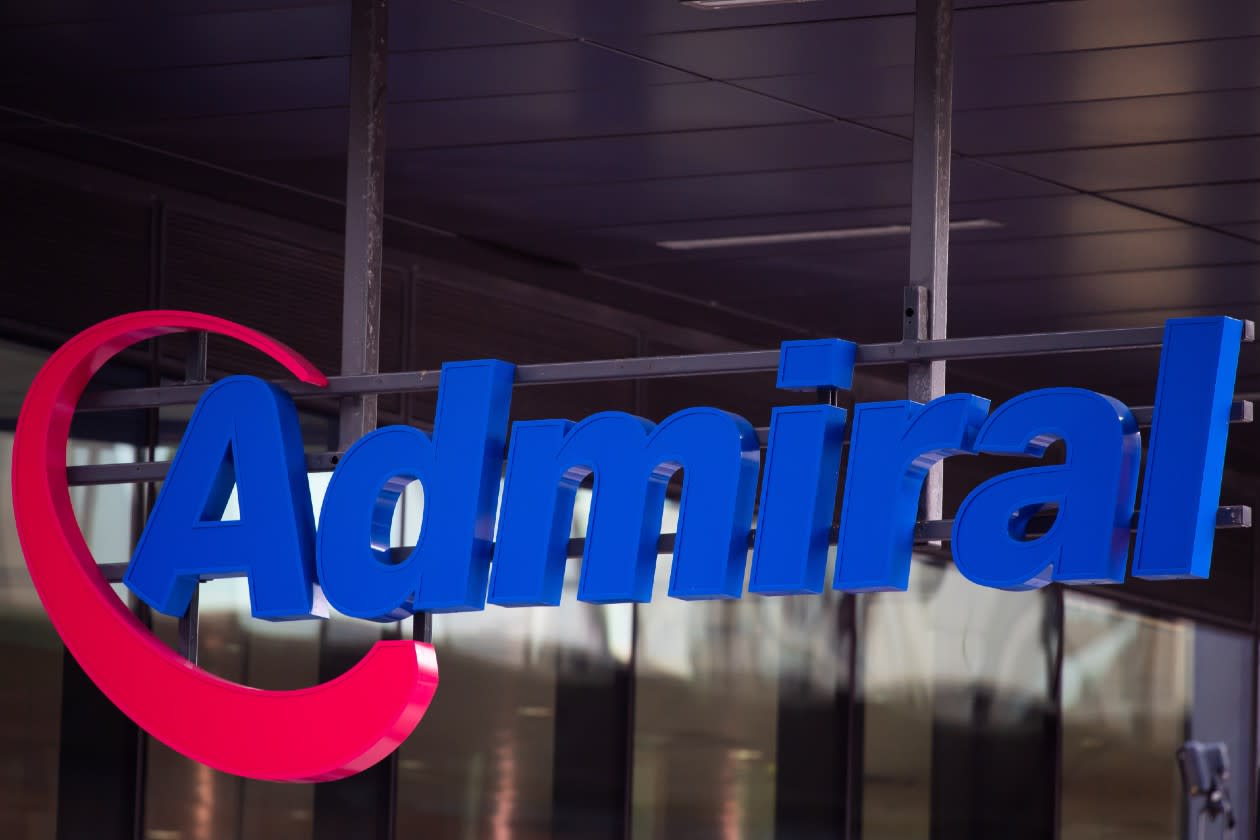Admiral Group’s first-half turnover increased by 43% helped by an increase in customer numbers and higher average premiums.
Profit before tax came in ahead of forecasts, growing 32% to £309.8mn. This was largely due to the UK Motor Division, which benefitted from more profitable insurance contracts.
The solvency ratio which measures balance sheet strength improved from 182% to 198%.
The Group declared an interim dividend of 71.0p, an uplift of 39%.
The shares were up 9.1% following the announcement.
Our view
Thanks to the quick pricing action early last year, Admiral is now starting to reap the rewards of an improving market, with last year’s strong momentum carrying over into the first half of 2024.
UK motor insurance is the core division, which has been a tricky place to operate given the rising cost of servicing claims. But hefty price hikes are starting to flow through to revenue as customers roll over to contracts at higher rates. Admiral was hiking prices ahead of the broader market early last year and customer numbers took a hit. But it wasn’t long before the market caught up on premium pricing. As inflation moderates Admiral is becoming more competitive and is seeing sustained growth in policy numbers, which should see it expand its already leading market share.
This coupled with more efficient performance of those underwriting customer’s policies, is helping to boost profitability.
International efforts have been a drag on the bottom line, but profits have now inched into positive territory, so it's an area to watch.
The business model relies heavily on reinsurance, where an insurer passes on insurance business to a third party who takes on the liability. This is a fairly common practice and allows insurance companies to build their brand by taking on all manner of customers but only being on the hook for risks they want.
Admiral’s ace is a significantly higher reinsurance rate than peers. Relationships are key, and this strategy allows Admiral to be selective on its risks while funnelling more data to the group's bespoke machine learning tools. It's a recipe that's helped deliver market-leading performance; there's no guarantee it will continue.
The key risk we see is regulation. Admiral makes a good chunk of profit selling add-on products. But with the regulator looking to clamp down on unfair practices we see these types of revenue streams as coming under pressure.
The groups solvency ratio is strong, a good way ahead of the group’s target range. Dividend growth from here looks attainable, but it's worth remembering the payout ratio is expected to be 90-95% of earnings - so if earnings surprise on the downside return levels would also fall. Of course, no dividends are guaranteed.
We think Admiral has several competitive advantages over many of its peers, from bespoke data analytics to strong relationships with reinsurers. But these strengths are already reflected in a valuation that’s a good step ahead of the sector.
Environmental, social and governance (ESG) risk
The financials sector is medium-risk in terms of ESG. Product governance is the largest risk for most companies, especially those in the US and Europe with enhanced regulatory scrutiny. Data privacy and security are also an increasingly important risk for banks and diversified financial firms. Business ethics, ESG integration and labour relations are also worth monitoring.
Admiral’s overall management of material ESG issues is average according to Sustainalytics, with Board-level oversight and a strong whistleblower programme. The group’s product governance has room for improvement with no official responsible marketing policy in place as well as a lack of regular training and reporting on its responsible product programme. Admiral’s management of data privacy is average, but lacks oversight and regular assessment.
Admiral Group key facts
All ratios are sourced from Refinitiv, based on previous day’s closing values. Please remember yields are variable and not a reliable indicator of future income. Keep in mind key figures shouldn’t be looked at on their own – it’s important to understand the big picture.
This article is not advice or a recommendation to buy, sell or hold any investment.No view is given on the present or future value or price of any investment, and investors should form their own view on any proposed investment.This article has not been prepared in accordance with legal requirements designed to promote the independence of investment research and is considered a marketing communication.Non - independent research is not subject to FCA rules prohibiting dealing ahead of research, however HL has put controls in place(including dealing restrictions, physical and information barriers) to manage potential conflicts of interest presented by such dealing.Please see our full non - independent research disclosure for more information.


